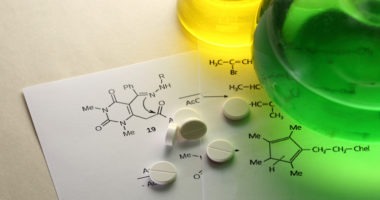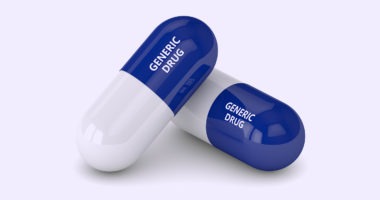Biomanufacturing on the Move: Which Companies Are Expanding?
Led by increased product development of biologics, including new modalities, biomanufacturing continues to be an active area of investment by CDMOs/CMOs. A roundup of the latest expansions.
A roundup of expansion activity
Some of the major investments by the larger CMDOs/CMOs in biomanufacturing are outlined below.
Fujifilm Diosynth Biotechnologies. In June (June 2022), Fujifilm Diosynth Biotechnologies announced an investment of $1.6 billion to expand manufacturing at its sites in Hillerød, Denmark, and College Station, Texas.
The company is expanding to support large-scale cGMP fed-batch production by adding 8 x 20,000-L bioreactors and two downstream processing streams in its Hillerød, Denmark, facility to provide a total of 20 x 20,000-L bioreactors for drug-substance production as well as drug-product and finished goods services. Fujifilm Diosynth acquired the facility from Biogen in 2019 for approximately $890 million.
The company will also expand cell-culture manufacturing at its site in College Station, Texas, by implementing the company’s proprietary manufacturing platforms: MaruX for upstream and downstream continuous biomanufacturing and SymphonX, an automated and downstream purification system. Earlier this year (2022), Fujifilm Diosynth announced a $300-million expansion of its single-use manufacturing campus in College Station, Texas, through the addition of a new production facility that will double the company’s advanced therapy and vaccine manufacturing capacity in the US. This new facility, expected to be operational by 2024, will add approximately 138,000 square feet to the existing campus and grow the site to 300,000 square feet.
Last October (October 2021), Fujifilm Diosynth Biotechnologies broke ground on a new, $2-billion, large-scale cell-culture biomanufacturing facility in Holly Springs, North Carolina. The company had announced the investment in January 2021. The facility is expected to be operational by the spring of 2025.
In addition, in December 2021, the company announced plans to invest £400 million ($533 million) to expand its site in Billingham, Teesside, UK, with the addition of a viral gene-therapy facility and a mammalian cell-culture facility. The new facilities are expected to be operational by late 2023. The investment is part of a JPY 90 billion ($797 million) global capital investment package initially outlined by the company in June 2021. In addition to the gene-therapy and cell-culture manufacturing expansion in the UK, the investment includes doubling cell-culture production for recombinant vaccines in the US and doubling microbial fermentation capacity at an existing UK facility.
Also, earlier this year (2022), Fujifilm acquired a cell-therapy manufacturing facility in Thousand Oaks, California, from Atara Biotherapeutics, a South San Francisco, California-based biopharmaceutical company, for $100 million. The facility can produce both clinical and commercial cell therapies, including allogeneic T-cell and CAR T immunotherapies. Fujifilm Diosynth is also expanding its viral-vector and gene-therapy offerings in Darlington, UK, with process development laboratories and manufacturing capabilities for early-stage gene therapies. The process development laboratories are operational with manufacturing services started in the spring of 2022.
The company is also expanding its BioProcess Innovation Center in Research Triangle Park, North Carolina, which will double the site’s existing laboratory footprint with an additional 89,000 square feet. The expansion is expected to be completed and the capacity operational by mid-2024.
Samsung Biologics. One of the largest expansions announced or ongoing expansions by CDMOs/CMOs is Samsung Biologics’ KWR 2-trillion ($1.7-billion) investment for a new biomanufacturing plant, the company’s fourth, in Incheon, South Korea, and for a second bio complex. The company broke ground on the new facility in November 2020, which, upon completion, will provide 256,000 liters in total biomanufacturing capacity. The plant will begin partial operations by October 2022, with the goal to commence full operations in 2023. Upon its full completion in 2023, the company will have total biomanufacturing capacity of 620,000 L.
In July (July 2022), the company signed a land purchase agreement for KRW 426 billion ($324 million) with the Incheon Free Economic Zone to support the build-out of its second bio campus in South Korea. The additionally acquired land is located within the Songdo Industrial Cluster and covers an area of 357,366 square meters, which is 30% larger than the company’s current campus. The new bio campus will support the company’s further expansion of large-scale manufacturing capacity and will host a multi-modal plant and open innovation facility. As a result of this deal, 4,000 additional jobs are expected to be generated by 2032 when the project is completed.
Also, in January 2022, Samsung Biologics, announced plans to start construction of a new manufacturing facility for multi-modal products, including cell and gene therapies and vaccines using messenger RNA (mRNA), plasmid DNA (pDNA), and viral vectors, all at a single site. This facility will be in addition to the mRNA vaccine drug-substance manufacturing suite the company added to its existing facility in Songdo, South Korea.
Lonza. Lonza is proceeding with expansions in the US, Switzerland, and China. In 2021, Lonza announced plans to invest approximately CHF 850 million ($935 million) to add two mammalian drug-substance manufacturing facilities at its sites in Visp, Switzerland, and Portsmouth, New Hampshire. The expansion in Visp will add a new 27,500-square-meter large-scale mammalian drug-substance manufacturing facility. The facility is expected to be completed in 2024 with an investment of approximately CHF 650 million ($715 million). The expansion will complement the company’s existing large-scale biomanufacturing global network at its sites in Tuas, Singapore; Porriño, Spain; and Portsmouth, New Hampshire.
In Portsmouth, New Hampshire, the company is adding a new biomanufacturing facility for small-to-mid-volume production. The CHF 200-million ($220-million) facility will add capacity for up to eight 2,000-L single-use bioreactors to support Phase III clinical and commercial small- to mid-volume products. The facility is expected to be completed in 2023, and will complement the company’s existing single-use network at sites in Hayward, California; Slough, UK; Tuas, Singapore; and Visp. In addition, Lonza began operations in the second quarter of 2021 at its new 17,000–square-meter mammalian-cell biomanufacturing facility in Guangzhou, China.
In addition, Lonza also invested in expanding its microbial development footprint in Switzerland and added new suites for viral vector, cell and gene therapies, and bioconjugation. Last November (November 2021), Lonza announced an investment to expand microbial development capacity at its facility in Visp, Switzerland. Also, in 2021 (October 2021), Lonza announced plans to expand its mammalian-based biologics development services at its site in Tuas, Singapore, by adding additional capacity for cell culture, purification, and analytical services.
Boehringer Ingelheim. In October (October 2021), Boehringer Ingelheim (BI) inaugurated a new EUR 700-million ($827-million) large-scale, cell-culture biomanufacturing facility in Vienna, Austria. The facility has up to 150,000-L manufacturing capacity for BI products and contract manufacturing activities. The company broke ground on the facility in 2017, and the facility adds to the company’s biomanufacturing network in Biberach, Germany; Vienna, Austria; Fremont, California; and Shanghai, China.
Thermo Fisher Scientific. Last month (August 2022), Thermo Fisher Scientific opened a new viral vector 300,000-square-foot manufacturing facility in Plainville, Massachusetts. Also in 2022, the company is expanding its cell-therapy network with the addition of a 44,000-square-foot cell- therapy development and cGMP manufacturing center at the Mission Bay campus of the University of California, San Francisco (UCSF) as part of strategic partnership with UCSF. These investments follow the opening of a 67,000-square-foot cGMP plasmid manufacturing facility in Carlsbad, California, last year (2021) to support clinical and commercial needs for raw material and drug-substance development for cell and gene therapies and vaccines. Also, in 2021, Thermo Fisher added to its contract viral vector manufacturing services with the acquisition of Henogen S.A., Novasep’s viral vector manufacturing business in Belgium, for approximately EUR 725 million ($875 million).
These expansions build on the company’s continued investment in cell- and gene-therapy manufacturing facilities, including: (1) viral vector facilities in Cambridge, Lexington, and Plainville, Massachusetts, and Alachua, Florida; (2) a new cell-therapy manufacturing facility in Princeton, New Jersey; and, (3) a new dedicated cryocenter in Weil am Rhein, Germany, to provide specialized cryogenic and cold-chain supply-chain services to support clinical trials across Europe and globally.
On the biologics drug-substance side, Thermo Fisher is doubling biologics manufacturing capacity at its St. Louis, Missouri, site to support production growth from 2,000 L to 5,000 L. A new 58,000-square-foot expansion will be operational in 2023. Also, a new 1.5-million-square-foot biologics manufacturing facility for commercial-scale, large-volume manufacturing in Lengnau, Switzerland will be operational later this year (2022). Additionally, the company added mRNA synthesis capabilities at its site in Monza, Italy, to produce drug substance for vaccines and therapies.
.Catalent. Earlier this year (2022), Catalent acquired from Erytech Pharma a commercial-scale cell-therapy manufacturing facility in Princeton, New Jersey, for $44.5 million. The 30,900-square-foot facility houses 16 production suites as well as laboratories for analytical, quality control and microbiology testing. The site will become a strategic campus for development as well as clinical- and commercial-scale manufacturing of cell therapies, and complements Catalent’s facilities around Baltimore, Maryland, where the company develops and manufactures viral vectors and plasmid DNA, and Catalent’s existing US clinical-scale cell-therapy facility in Houston, Texas. Concurrent with the acquisition, Catalent agreed to lease an adjacent 23,000-square-foot building that could be used for additional laboratory or cGMP capabilities and another building on the site for potential future expansions.
Also, in 2022, Catalent announced a multi-year $350 million investment at its facility in Bloomington, Indiana, to expand biologics drug-substance and drug product manufacturing capabilities. The expansion includes the installation of new 2,000-liter single-use bioreactors and expanded downstream processing capabilities for drug substances, with batches of up to 4,000-liters using single-use technology, or 5,000-liters using existing stainless-steel bioreactors. Also included are new quality control laboratories and packaging space with additional high-speed, automated cartoning and auto-injector device assembly capabilities. These new capabilities will be fully operational later in 2022.
Also in April 2022, Catalent acquired from Vaccine Manufacturing and Innovation Centre UK Limited a biologics development and manufacturing facility near Oxford, UK. Catalent is investing up to $160 million to complete the building of the facility and equip it with capabilities for the development and manufacture of biologic therapies and vaccines, including mRNA, proteins, and other advanced modalities. It is expected that the new facility will employ more than 400 people.
In 2021, Catalent made several investments to increase biologics drug-substance manufacturing and cell- and gene-therapy manufacturing. In July (July 2021), Catalent announced that it will begin the first phase of a planned $100-million expansion at its facility in Anagni, Italy, to add biologics drug-substance manufacturing. The initial expansion is expected to be commissioned and operational for customer projects in April 2023. Later phases of the planned expansion involve the provision of 16,000 liters of total flexible manufacturing capacity to enable 2,000-liter to 8,000-liter batch production scale. Catalent’s Anagni site now provides aseptic filling, secondary packaging, and oral dose manufacturing for late-stage and commercial product launches. Since Catalent acquired the facility in January 2020, it has become a European hub for COVID-19 vaccine manufacturing as well.
Also, on the biologics drug-substance side, in 2021, Catalent completed the expansion of two new suites at its biologics drug-substance development and manufacturing facility in Madison, Wisconsin. The expansion increased the number of manufacturing suites at the site to five, which more than doubled its overall cGMP-scale capacity.
In cell and gene therapies, in 2021, Catalent acquired RheinCell Therapeutics, a Langenfeld, Germany-based developer and manufacturer of human induced pluripotent stem cells, which became part of Catalent’s Cell & Gene Therapy business. In May 2021, Catalent acquired Promethera Biosciences’ cell-therapy manufacturing subsidiary, Hepatic Cell Therapy Support SA (HCTS), including its 32,400-square-foot facility in Gosselies, Belgium. The facility accommodates Catalent’s commercial-scale plasmid DNA (pDNA) manufacturing and is located on Catalent’s existing campus in Gosselies, adjacent to the Delphi Genetics building. Catalent announced the acquisition of Delphi Genetics in 2021, a spinoff from the Université libre de Bruxelles and a bioproduction CDMO with capabilities in pDNA development and cGMP manufacturing. Catalent gained its facilities in Gosselies, Belgium, with its $315-million acquisition of MaSTherCell, a provider of cell- and gene-therapy development and manufacturing services in 2020.
In addition, in October 2021, Catalent announced a $230-million expansion project to add three commercial-scale viral-vector manufacturing suites and associated support facilities and services at its gene-therapy campus in Harmans, Maryland, which brings its total investment at the site to $360 million. A second facility is under construction following an initial $130-million investment by Catalent in 2020, which will add five new manufacturing suites that are expected to be operational in 2022. When completed at the end of 2022, the campus will house a total of 18 viral-vector manufacturing suites, each designed to accommodate multiple bioreactors up to 2,000-liter scale and enable the execution of commercial manufacturing from cell bank to purified drug substance.
WuXi Biologics. In July (July 2022), WuXi Biologics announced a 10-year, $1.4 billion investment plan to expand the company’s research, development, and large-scale drug-substance and drug-product manufacturing capacity and capabilities in Singapore. This new site will add 120,000L biomanufacturing capacity to WuXi Biologics’ global network by 2026 and is anticipated to employ 1,500 research, development and manufacturing staff when complete.
Late last month (August 2022), WuXi Biologics launched its GMP Phase I drug-substance clinical manufacturing facility in Cranbury, New Jersey. The site’s clinical manufacturing operations have an initial capacity of 4,000 L and can expand to 6,000 L, using only single-use technology. It is WuXi Bio’s first GMP manufacturing facility in North America. In addition, earlier this year (2022), the company extended its capabilities to include development and cGMP manufacturing for microbial-derived products at its site in Hangzhou, China.
Last November (November 2021), WuXi Biologics completed the first GMP production at a new 24,000-L line of its drug-substance facility in WuXi, China. This followed the initial GMP operations of the 36,000-L biomanufacturing line at the facility earlier in 2021. The facility has a total of 60,000 L of biomanufacturing capacity to support late-phase and commercial projects across multiple modalities, such as monoclonal antibodies, bispecifics, and fusion proteins.
Also, in 2021, the company, the company completed three acquisitions to increase its production capacity: a drug-substance facility in Wuppertal, Germany, from Bayer; drug-substance/drug-product facilities in Hangzhou, China, from Pfizer; and the Chinese CDMO CMAB Biopharma.
Note: currency conversions are at the time of expansion announcement.




